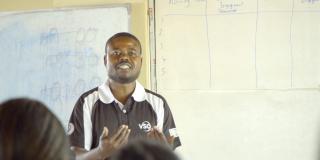
Tugwell Chadyiwanembwa, 39, is the Social Accountability Advisor working on VSO’s Speak It Loud project in Zimbabwe. He brings his 16 years’ experience as a social worker to help end intimate partner violence, reduce incidences of child marriage, mobilise and strengthen the women’s movement under the project.
"I joined VSO’s ‘Speak it Loud’ project as a volunteer social accountability advisor to help defend the rights of women and girls in Zimbabwe and beyond. I grew up in a rural area, and I appreciate some of the challenges girls and young women suffer in trying to stand up for their rights.
I am passionate about creating a safe environment for humanity, particularly for women. I'm a social worker and have been practising for more than 16 years; my background is in social studies, with an Honours in Social Work, Master Degree in Social Work, Master of International Relations, Executive Master of Business Administration and a Diploma in Human Resources Development plus Certificate in Project Planning and Management. I've worked in governmental and academic institutions, as well as NGOs, on projects supporting children, young women, and vulnerable communities.
How Speak it Loud is tackling violence against women
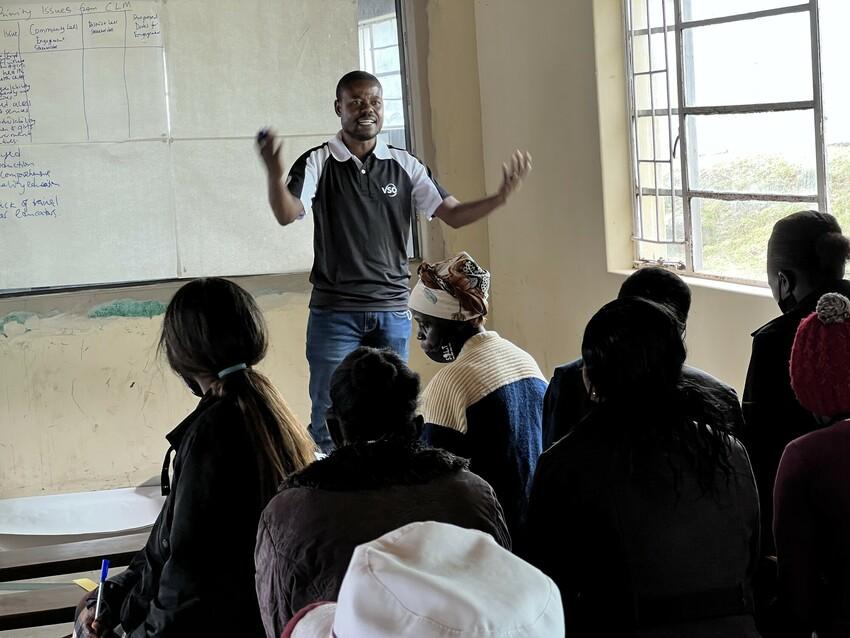
The Speak It Loud project aims to end violence against women and girls by strengthening the organisations that support them, and advocating for the protection and respect of their rights in their communities.
I worked with about 15 civil society organisations, helping them to improve their capacity to demand and drive change and accountability from duty bearers, and provide space for girls and young women to exercise their voice and access the services they are entitled to.
I provided training on how to apply social accountability tools to organisations across three provinces in Zimbabwe – Mashonaland West, Mashonaland Central, and Manicaland. I also helped support other country offices as part of the global team as a technical lead on social accountability, ensuring that other projects made use of the same tools to mainstream social accountability. I enjoyed the spirit of teamwork; it was a dynamic process of sharing ideas, learning from other core approach areas, and ensuring that we maintain social accountability as a critical part of VSO.
COVID-19 posed one of the biggest challenges to the project, limiting our interactions with participants and making it difficult to reach out to some organisations, particularly during project implementation.
Another difficulty we faced was the perception of social accountability as a political concept, and an act of challenging authorities. I tried to get them to view it as a positive opportunity to work together to address certain rights violations within their communities. It took some time, but I started to notice some changes in the second year. People in communities began to identify issues, bring them to the attention of the service providers and it takes some appreciation from all the involved parties to say “this is important to us”.
A particular success that sticks out to me is our work on community-led monitoring. This revealed that girls and young women, domestic violence survivors and survivors of the cyclone disasters in the area are still suffering from trauma and emotional challenges associated with the events. The partner organisation we were working with is now considering supporting the girls and young women for longer than they had anticipated.
Participants flagged issues regarding different types of abuse that are happening in their community, and we held discussions with various stakeholders that were best placed to manage some causes of abuse. The partner organisation we were working with is now using the findings to provide young women and girls with more mental health support, and the women and girls themselves report that these real issues are now being addressed differently.
Volunteering with VSO
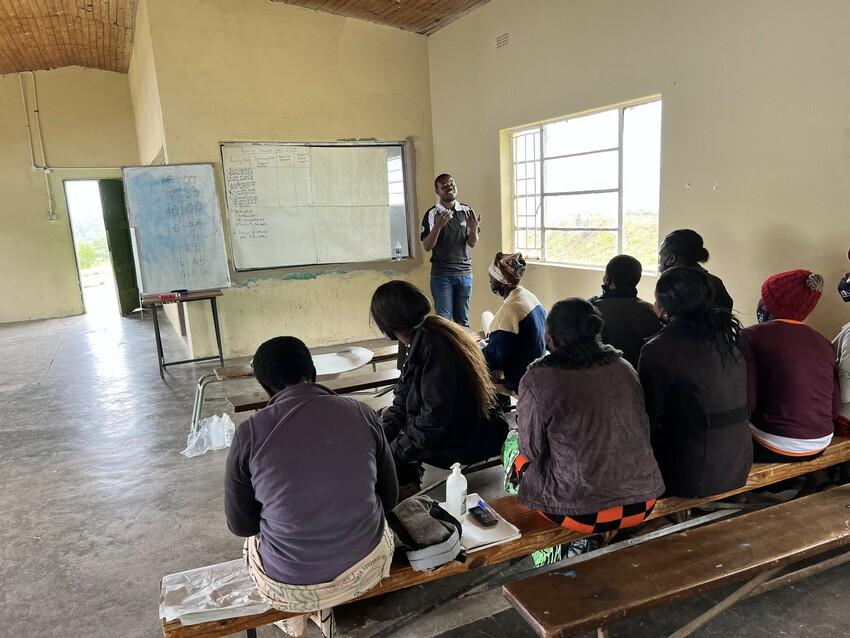
I feel that VSO has chosen an empowering approach that puts you in a position to say “I can contribute something to my community”. You’re coming in as an expert to share your skills and knowledge, and contribute to problem solving – and at the same time, I have flexibility in the whole process. As a volunteer, I had space to manoeuvre, to be creative and innovative, and to contribute meaningfully.
Besides helping communities, the work was a great way of personally obtaining new skills and knowledge. I got to appreciate people and their situations much better by interacting directly and working with them, and the training sessions and tools like community-led monitoring were a big part of the learning process.
Through my interactions with different team members at all different levels around the world, I got to learn how to best facilitate the knowledge exchange between people – including online. We need to understand how to best communicate with people, especially when they are not available for each other physically. All those experiences allowed me to grow professionally, and I can now say that I am a different person after taking part in this project.
Once you become a volunteer, you come in with an open mind; you have a specific goal and focus, which is to contribute to a necessary improvement of people's lives. My intention was to ensure that everyone respects the rights of girls and women, and that they can claim their rights. And by transferring the skills to do so to the organisations we worked with, the change is sustainable beyond my volunteering placement.
For me, social work is not just a career, it’s more like a calling. I want to see people helping themselves; I want to see people realising their dreams and working towards their aspirations in life. I want to see people given access to the valuable services that are important for their welfare. I try my best to share my skills and, by volunteering with VSO, I felt that was the right time for me to give back to society and contribute to making it fair for everyone.
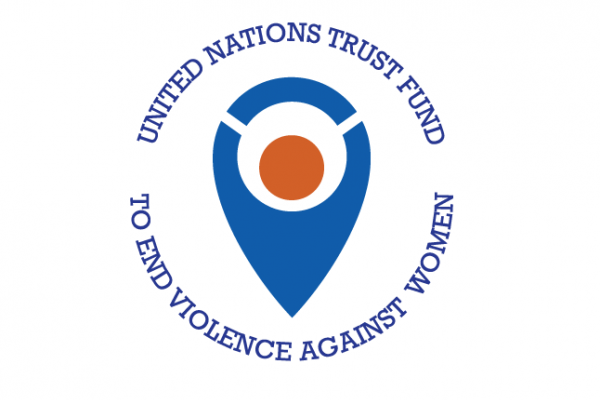
To anyone considering volunteering, the first step is to make sure that you really love what you want to do. The second step is to ask yourself: “Do I have the skills and knowledge to contribute meaningfully?”, and commit to doing your best to bring about change.
The last step is to just go for it!
Thinking of volunteering with VSO?
If you’re interested in volunteering with us, we’d love to hear from you. VSO continually recruits experienced professionals to support our programmes in Asia and Africa.
Read more
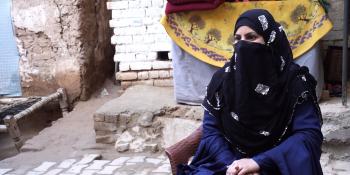
"Girls deserve an education just as much as boys"
Meet 26 year-old community volunteer Salma Rehmat from Afghanistan. Salma advocates for Afghan refugees and host communities in Pakistan to access a quality education. Find out more.
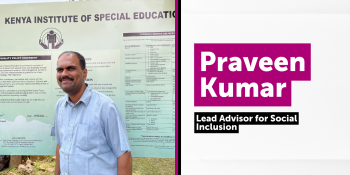
Life at VSO: Praveen Kumar, Global Lead Advisor for Social Inclusion
Praveen Kumar Gurunath has been working with VSO for the past 18 years in various roles, and for the past five years as the Global Lead Advisor for Social Inclusion. Find out more about his experience at VSO.
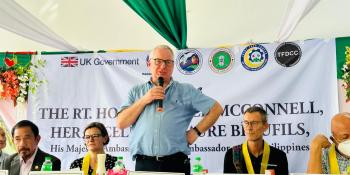
Former First Minister of Scotland welcomes launch of VSO peacebuilding project in the Philippines
In January 2024, Lord Jack McConnell, former First Minister of Scotland and former VSO volunteer, visited Camp Badre in Maguindanao del Norte, the Philippines. Hear his reflections from the trip.
